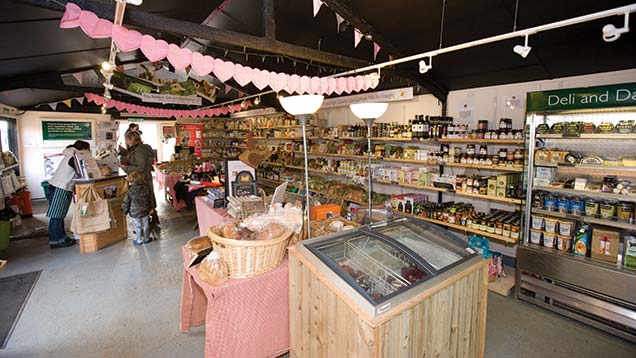£24m England rural business development grant pot opens
 © Tim Scrivener
© Tim Scrivener A £24m grant fund is available to help rural businesses invest in business development, food processing, small-scale tourism infrastructure and co-operation.
The Growth Programme opened on 27 July and provides funding to help projects in England which will encourage strong rural economic growth and create new jobs.
This scheme is just one part of the wider Rural Development Programme, which is worth more than £450m in the next six years.
See also: Guide to grants for dairy and livestock farmers
The grants are administered through Local Enterprise Partnerships (LEP), which are partnerships between local authorities and local businesses across England.
Funding for a limited number of LEPs opened this week with a 30 October 2015 deadline for grant applications. A further two rounds are expected in August and September and the remaining areas will be invited over the next few months.
To make sure that the funding available is targeted where it can bring the biggest benefit, applications will be scored against a range of criteria, including local priorities.
Simon Haley of Reading Agricultural Consultants said that there would be some good opportunities for rural businesses in the Growth Programme but that it would be very competitive.
It was important that all farmers looked at the full outline and deadlines of the funding available in their local area, and gleaned as much information as possible before sitting down and writing their grant application, said Mr Haley. It would help to speak to a local LEP contact about their proposed project outline.
The Growth Programme grants are funded by the European Agricultural Fund for Rural Development (EAFRD).
Farming minister George Eustice said that the grants would support business, bring high-quality jobs to rural areas, boost rural productivity and grow the local economy.
|
Grant type |
Who can apply? |
|
Business development |
Micro (fewer than 10 full-time employees and annual turnover of £1.6m or less) and small (fewer than 50 full-time employees and annual turnover of £7.9m or less) businesses in a rural area, including social enterprises. Farmers wanting to diversify into non-agricultural activities. |
|
Food Processing |
Micro, small and medium-sized (fewer than 250 full-time employees and £39m or less annual balance sheet) food-processing businesses processing (examples include meat, milk, grain and root vegetables). |
|
Small-scale tourism |
Rural businesses and rural communities, farmers and landowners |
|
Tourism co-operation |
Businesses in a rural area. Charities, public bodies, community groups and destination organisations operating in a rural area. |
